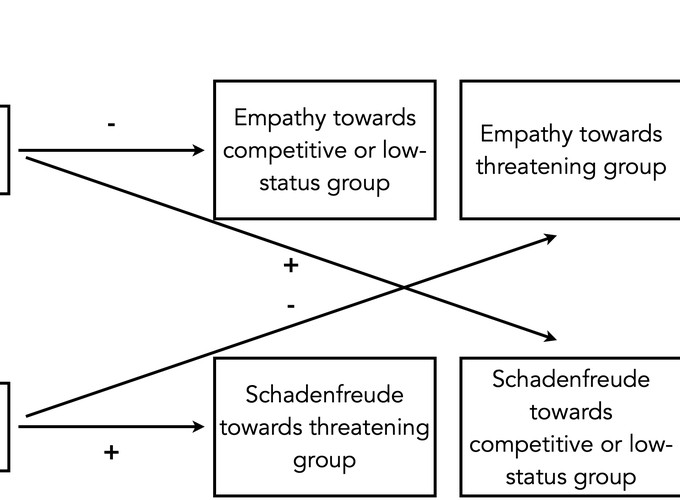Connecting personality and ideology as antecedents of group-based empathy and schadenfreude
Abstract
Empathy and schadenfreude are emotions that often lead to moral prosocial behaviors or harmful spiteful behaviors, respectively. An outstanding question is what motivates people’s feelings of empathy and schadenfreude towards people from different groups. Here we test two prominent motivators of emotions- personality and ideology. Previous work has found that people’s ideological orientations towards respecting traditionalism (RWA) and preferences about group-based hierarchy (SDO) can impact intergroup emotions. Further, low agreeableness, low openness to experiences, and high conscientiousness uniquely engender SDO and RWA. In the research presented here (N = 492), we examine the relationship between personality, ideology, and emotions, arguing that SDO and RWA will predict reduced empathy and increased schadenfreude but towards different groups. SDO will predict reduced empathy and increased schadenfreude towards low-status groups while RWA will predicted reduced empathy and increased schadenfreude towards threatening groups. We further extend past work by investigating a third ideology (left-wing authoritarianism), exploring its relationship with personality and emotions. We find broad support for our expectation that the relationship between personality and emotions, as well as ideology and emotions, depends on the specific group in question.
